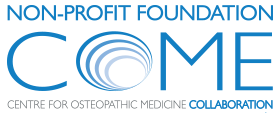Patient reported outcomes in a large cohort of patients receiving osteopathic care in the United Kingdom
| By Patrick van Dun | 0 Comments
The use of Patient Reported Outcome Measures (PROMs) to evaluate care is being advocated increasingly in clinical settings. Electronic data capture is both resource and environmentally friendly and convenient. The purpose of this study was to test and implement a nationwide system to collect routine PROM data from osteopathic patients using a web and mobile app … MORE







